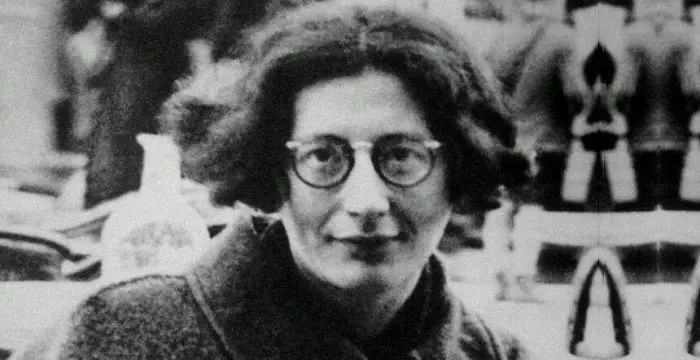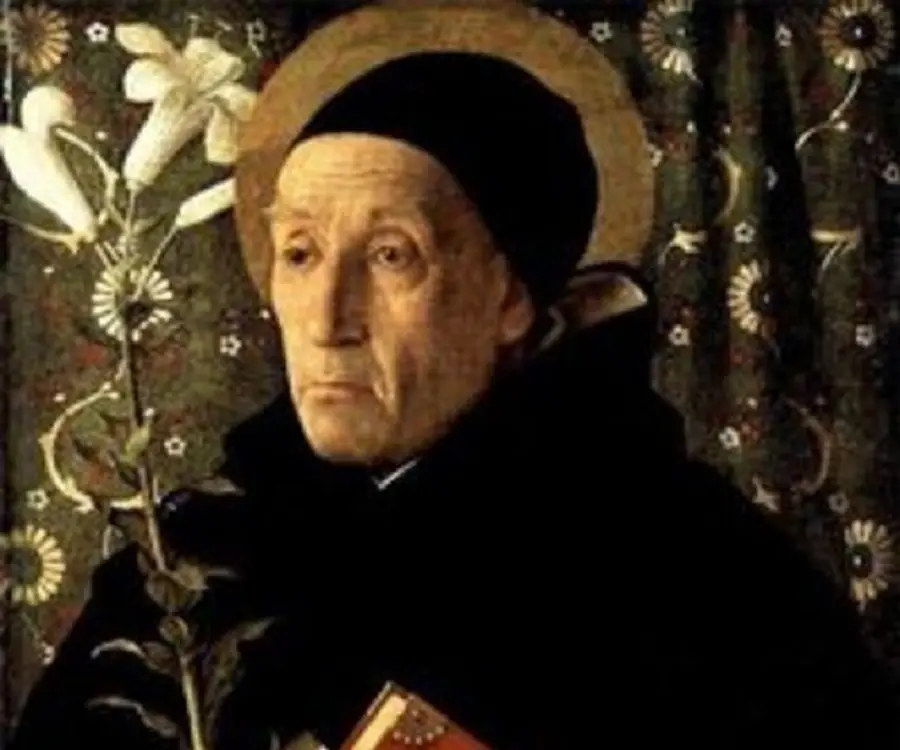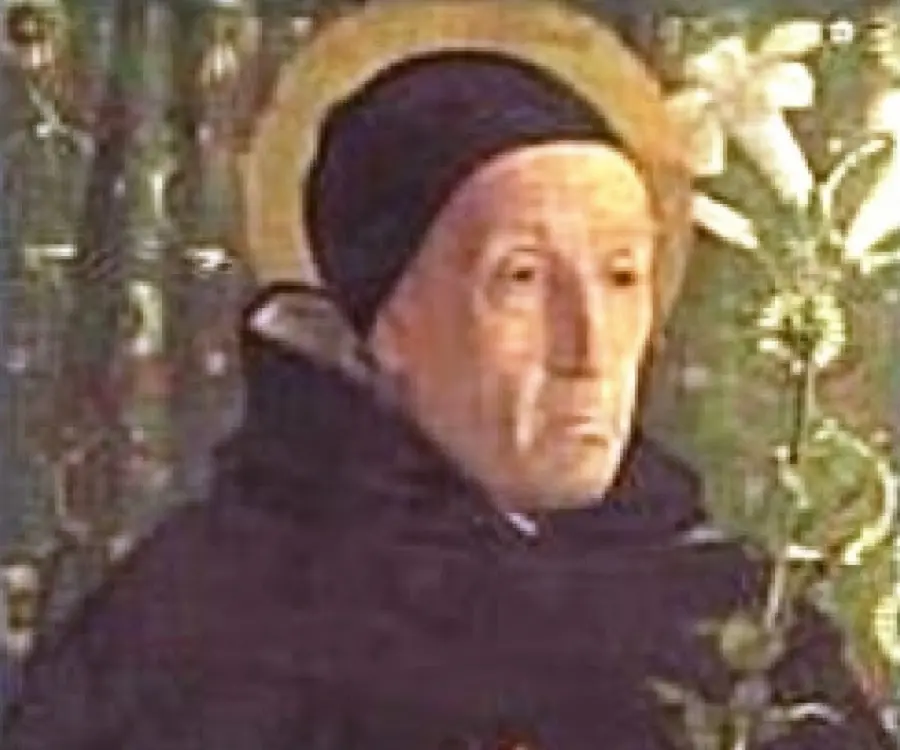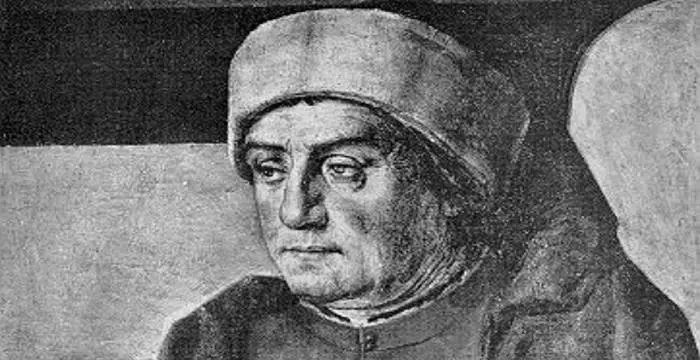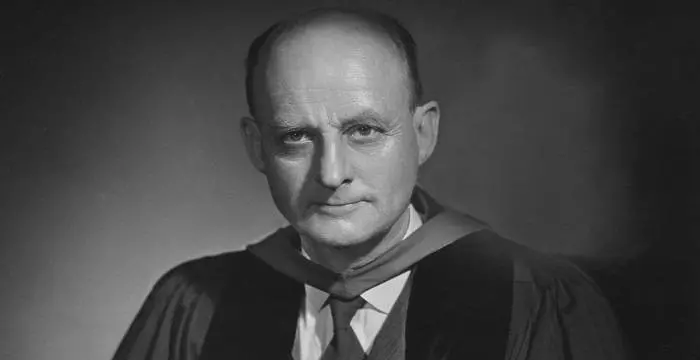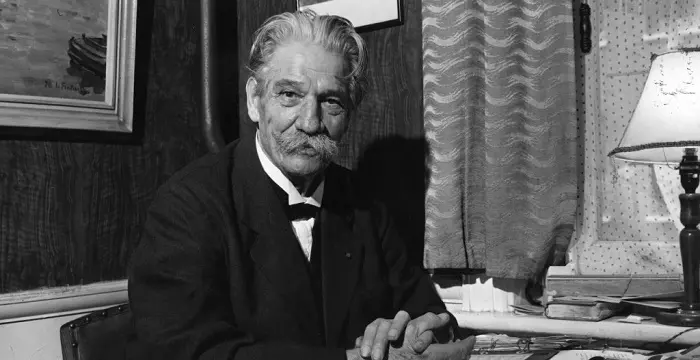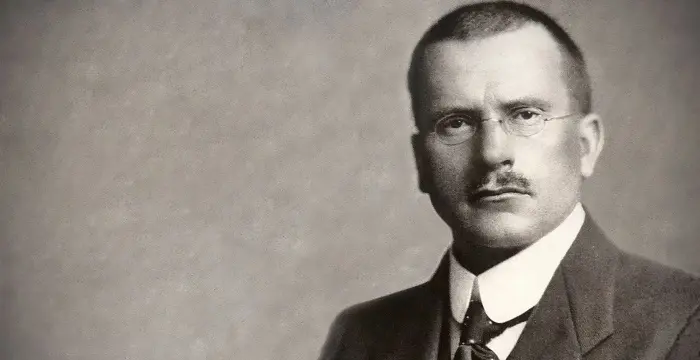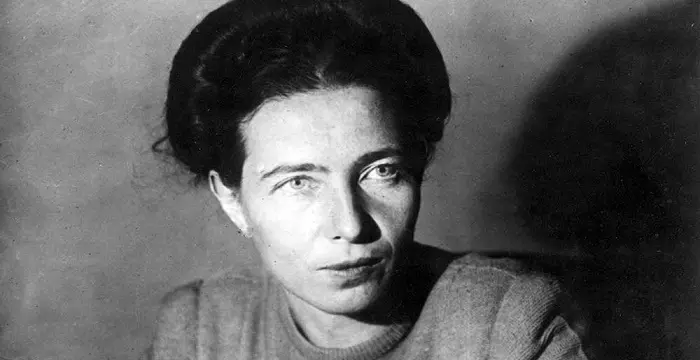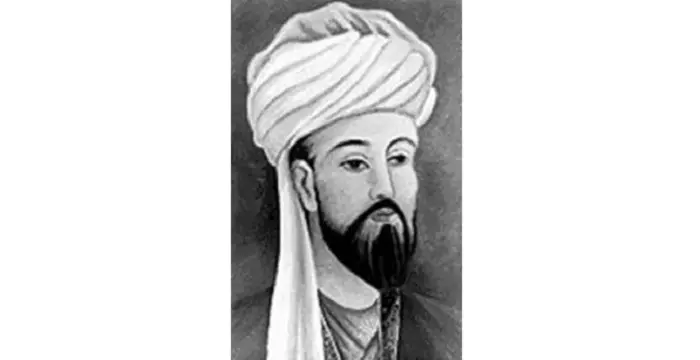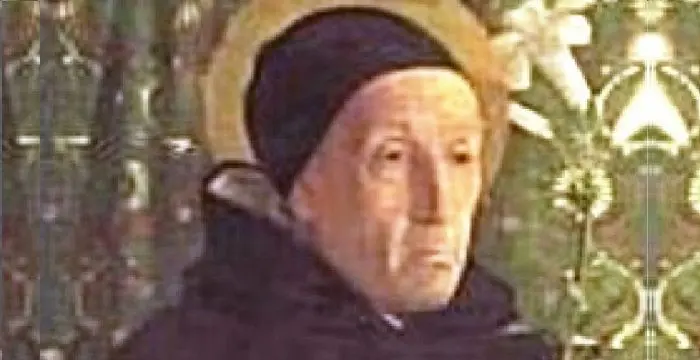
Meister Eckhart - Mystic, Facts and Childhood
Meister Eckhart's Personal Details
Explore this biography to know the profile, childhood, life and timeline of Meister Eckhart, who brought in a great change in Germany with his groundbreaking thesis and ideas.
| Information | Detail |
|---|---|
| Birthday | 1260 |
| Died on | January 1, 1328 |
| Nationality | German |
| Famous | Intellectuals & Academics, Philosophers, Theologians, Mystic |
| Universities |
|
| Birth Place | Tambach-Dietharz |
| Gender | Male |
| Born in | Tambach-Dietharz |
| Famous as | Philosopher, Theologian, Mystic |
| Died at Age | 68 |
// Famous Mystic
Simone Weil
Simone Weil was a French philosopher, Christian spiritualist and an activist who was a part of the French Resistance during World War II. Know more about her life, childhood, and timeline here.
Meister Eckhart's photo
Who is Meister Eckhart?
Eckhart von Hochheim, better known to the world as Meister Eckhart, was born in a German family of landowners in c.1260. He was endowed with the honorific title of “meister” (master in German) after he obtained the academic title of ‘Magister in Theologia’ from the University of Paris. A theologian, preacher, mystic, writer, able orator and a renowned philosopher of the thirteenth-fourteenth century, Meister Eckhart’s life and feat is no ordinary deed. His works, ideas and contributions have kindled and captivated the curiosity of the modern readers. He is lauded for his theistic works and his unusual views on god that is grounded on his principle conviction — “God is ‘No-thing’ – but rather the Being that undergirds all reality – and we must become no-thing to be one with God.” Despite of his dissident theological beliefs and ontological philosophies, his mysticism is still valued and respected. Although the Roman Catholic Church condemned him for his heretical theological ideas, Eckhart remained true to the teachings of the Church. Eckhart was one of the firsts to write inquisitive prose in German and introduce new terms and gradually with his work made German the language of democratic tracts.
// Famous Intellectuals & Academics
Bertil Gotthard Ohlin
Bertil Gotthard Ohlin was a famous Swedish economist. This biography profiles his childhood, family life & achievements.
Emily Greene Balch
Emily Greene Balch was an American economist, sociologist and pacifist who won the 1946 Nobel Peace Prize. This biography of Emily Greene Balch provides detailed information about her childhood, life, achievements, works & timeline.
Martin Buber
One of the greatest philosophers to have ever walked on earth, Martin Buber contributions to philosophy is a long-standing one. Explore all about his profile, childhood, life and timeline here.
Biography detail
Eckhart von Hochheim Childhood & Early Life
Eckhart was born at Hochheim, a municipality in the district of Gotha, in Thuringia, Germany. The birth date, however, remains somewhat ill defined. Not much is known about his family and early life except that he was born to a noble family of landowners. He got into the Order of Preachers (commonly known as Dominican order) at the age of 15. It is assumed that he received his education from the Studium Generale in Cologne founded by Albert the Great. In the year 1300, he went to Paris for higher studies and stayed there until 1303.
Career
After completing his academicals, he returned to Erfurt and was appointed as the Provincial Chapter of the newly founded province of Saxony and served the office till 1306. In 1307, he took over as the Province of Bohemia. In 1311, Eckhart was appointed a teacher at Paris by the general chapter of Naples. In the year 1313, Eckhart went to Strasbourg and served as an active preacher for Dominican communities from 1314-1322. In 1323, Eckhart settled in Cologne and started teaching at Studium Generale. During this time, he was accused of heresy by the archbishop, Hermann von Virneburg. However, Nicholas of Strasburg, who was the temporary in-charge of the Dominican monasteries in Germany, exonerated the charges. However, following a long interrogation and protest, he was excommunicated by The Bull of John XXII on 27 March 1329. However, it is unlikely that a man suspected of heresy could have been appointed teacher in one of the most famous schools of the order, but Eckhart's distinctive expository style could well have already been under scrutiny by his Franciscan detractors.
Views On Relationship Of Soul To God
Eckhart’s view on the relationship of the God to the soul is considered unique. The unqualified deity, the Trinity (birth of the Eternal Lord), and the creation of the world are the three immediate moments which trail each other in not chronological sequence, but conceptual. In the divine essence, all creatures have a certain role to play. According to him, there is something of God in the illogical creature, but in the soul God is divine and only rational creatures can save the words spoken by God. Its better said as God is subjective in his resting place – soul and objective in the rest of the creation. The soul is considered the image of God with its chief powers, memory, reason and will. This idea heads in the direction of Augustine. There is an innermost background of the soul, which Eckhart calls as spark or little spark, which is something present in the soul superior to its own powers. In the real sense, this basis of the soul is the one related with the Deity. Since soul has a subjective being, it must turn to God so that the crucial principle rooted in it may be truly realized. It is certain that it was made by God but just the creation of it is not enough; God must also come and exist in it. This has taken place without any encumbrance in the human soul of Christ but for all other souls, sin is an obstruction
Works and Contributions
In the year 1293-94 Eckhart held a lecture (Collatio in librosSententiarum) that is been saved till date. An academic preaching where the Sermo Paschalis a. 1294 Parisius habitus and the Tractatus super orationedominica go back to the same time. From 1294 to 1298, he composed his instructional talks - Die rede der underscheidunge and table talks for his confratres in the Erfurt domicile. In the year 1305, he composed the Opus tripartitum, a major work that contained three parts – the Opus propositionum (Work of Theses) which has more than 1,000 theses in 14 treatises, the Opus quaestionum (Work of Problems) and the Opus expositionum (Work of Interpretations). Meister Eckhart has written many Latin and German works. The Latin treatises is considered the most orthodox that includes 56 sermons, which has a long sermon on the lord’s prayer, scriptural commentaries, fragments from his opium tripartitum, introduction to his commentary on Lombard’s sentences, the Parisian questions and his Paris debates. His works in German begins with four treatises – Talks of Instruction (written in 1290s), The Nobleman/Aristocrat, on detachment/disinterest and in the year 1308 – the Book of Divine Consolation written for the widow Queen Anne of Hungary after the death of her mother and murder of her father Albert I of Austria.
In most of the works of Eckhart, the writings are in complete accordance with the will of God. After reading Eckhart’s works, one can see his ability to picture rich, multiple meanings from a single line in scripture. In the world where society has seen nearly everything in religious terms, Meister is delighted in talking in high levels about God. His thoughts flows out of direct and deep experiencing of Lord Spirit and comes up with numerous interpretations and illustrations with creative turns of language and in unchanging expressions of worshipful of God.
Death
Eckhart’s death date is not confirmed but he is said to have died around January 28, 1328 in Avignon before he could hear his judgment of conviction.
Legacy
In the fond remembrance of Meister Eckhart, The Eckhart Society has been built, which is an international society dedicated to promote and teach the principles of Meister Eckhart. The society aims in providing a complete study and research in the life, preaching, and writings of Eckhart. The main publication of this society is a yearbook, the “Jahrbuch der Meister-Eckhart-Gesellschaft” that is purely influenced from Eckhart’s studies. The chief language of this yearbook is German, but has contributors from languages like English, French, Spanish and Italian. A website is also dedicated to the Meister where the writings, translations, articles, manuscripts and books is available.
// Famous Theologians
Anicius Manlius Severinus Boethius
Boethius was an early 6th century Roman senator and philosopher best known for his treatise ‘Consolation of Philosophy’. This biography of Boethius provides detailed information about his childhood, life, achievements, works & timeline.
Reinhold Niebuhr
Reinhold Niebuhr was a German-American theologian, intellectual and political commentator who wrote the famous book, ‘Moral Man and Immoral Society’. This biography provides information about his profile, childhood, life and timeline.
Albert Schweitzer
Albert Schweitzer was a German born French theologian, organist, philosopher, physician, and medical missionary. Check out this biography to know about his childhood, family life, and achievements.
// Famous Philosophers
Martin Buber
One of the greatest philosophers to have ever walked on earth, Martin Buber contributions to philosophy is a long-standing one. Explore all about his profile, childhood, life and timeline here.
Lao Tzu (Laozi)
Lao Tzu was a legendary Chinese philosopher who wrote the important “Daodejing”. This biography profiles his childhood, life, career, achievements and timeline.
Alan Watts
Alan Watts was a famous British philosopher known for his Zen teachings and interpretations of Eastern philosophy. Read more about this great philosopher in the following article.
Carl Jung
Carl Jung was a Swiss psychiatrist famous for founding the school of analytical psychology. This biography of Carl Jung provides detailed information about his childhood, life, achievements, works & timeline.
Simone de Beauvoir
Simone de Beauvoir was an eminent French writer, intellectual, activist, and philosopher. This biography profiles her childhood, life, thoughts, achievements and timeline.
Jabir Ibn Hayyan
Jabir Ibn Hayyan was a medieval era polymath. Check out this biography to know about his life, works and achievements.
Meister Eckhart's FAQ
When was Meister Eckhart died?
Meister Eckhart was died at 1328-01-01
Where was Meister Eckhart died?
Meister Eckhart was died in Cologne
Which age was Meister Eckhart died?
Meister Eckhart was died at age 68
Where is Meister Eckhart's birth place?
Meister Eckhart was born in Tambach-Dietharz
What is Meister Eckhart nationalities?
Meister Eckhart's nationalities is German
What was Meister Eckhart universities?
Meister Eckhart studied at University of Paris
How famous is Meister Eckhart?
Meister Eckhart is famouse as Philosopher, Theologian, Mystic
